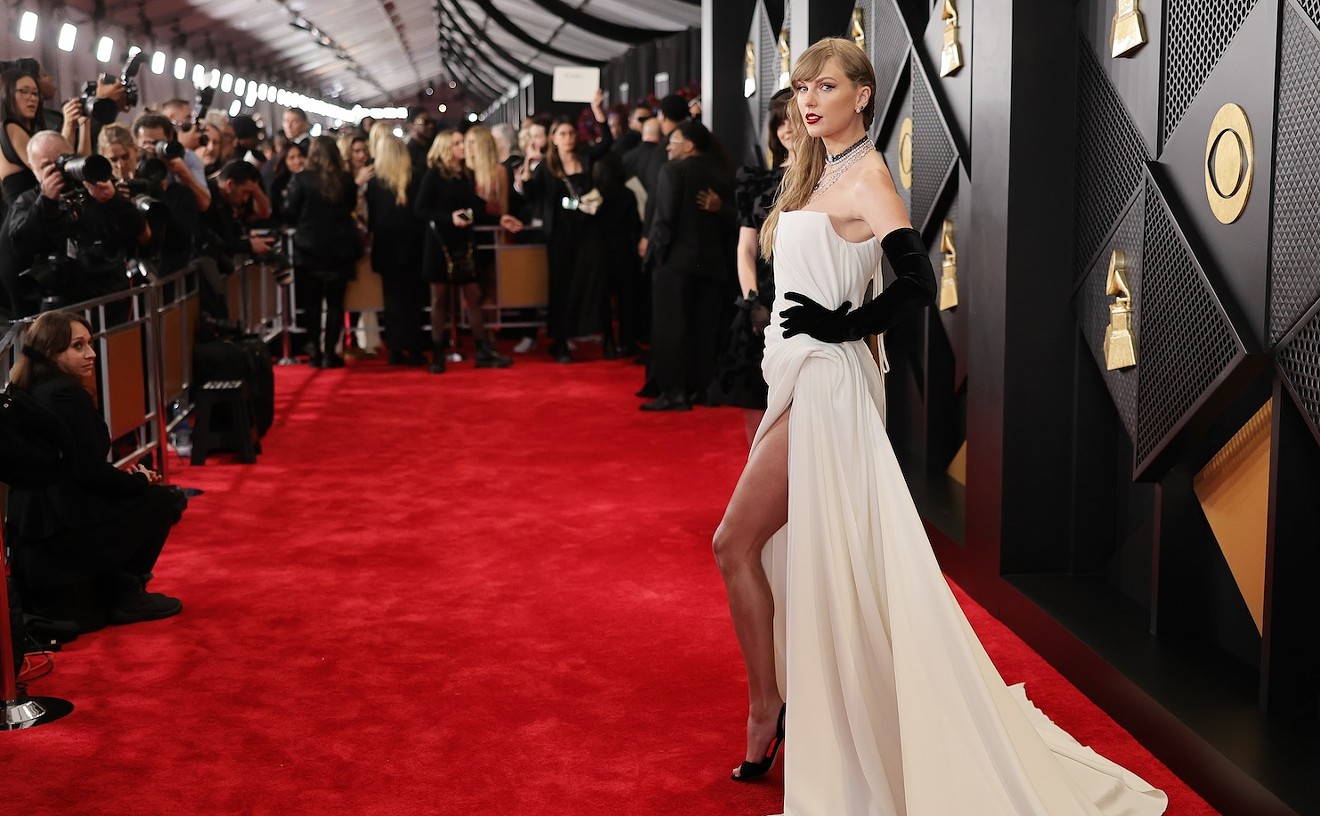That's the inspiration behind the Port of Miami's Africando 2001, the fourth annual U.S. Africa Trade Investment Symposium that culminates May 5 with a festival featuring King Sunny Ade and his African Beats. No musician could better represent the happy face of U.S.-African economic exchange than the sovereign of Nigerian juju, known as "the Chairman" for his savvy investment in enterprises ranging from nightclubs to oil fields. Equal parts talking drum and electric guitar, juju captures the pulse of globalization.
Africando organizers hope our much vaunted Gateway to the Americas will swing a little wider, opening up the Gateway to Africa. Deputy seaport director Khalid A. Salahuddin notes, "Miami is the closest point of entry from Africa. You have a unique opportunity here to say this is our market." Also performing at Port of Miami, local Afro-Caribbean acts Kashief & Nikesha Lindo (Jamaica), Ifé-Ilé (Cuba), Los Pleneros de Borinquen (Puerto Rico), Mantra (Brazil), Top Vice (Haiti), Sunshine Junkanoo Band (Bahamas), and Miami Pan Symphony (Trinidad) serve as a reminder of capitalism's big bang: the transatlantic slave trade. African and European music fused, forming the soundtrack of the colonial system that made Europe rich while underdeveloping Africa and scattering Africans across the Americas. Whether globalization, which critics claim will once again benefit the rich at the expense of the masses, will be any better remains to be seen. Listening to King Sunny Ade, you get a pretty good idea what globalization sounds like.
To get another earful of the FTAA you can check out the Third Annual Argentinean Festival on Sunday at Bayfront Park. Hailed as a free-trade success story for much of the past decade, Argentina slid into an economic decline over the past three years that has spurred an exodus of young Argentinos through Miami's gateway. Festival organizer Enrique Kogan, a seasoned promoter and magazine editor, estimates that our county's Río Plata population will double to 200,000 by the end of 2002. However accurate that projection, Kogan's festival has drawn huge crowds in its first two years, attracting not only new migrants but also the winners in the Argentine economy -- those who can afford travel to what Kogan calls that country's "second capital." More than half a million Argentine tourists visited Miami last year. Eager to welcome more, the Greater Miami Convention and Visitors Bureau is subsidizing trips for 80 journalists who will accompany the 75 artists flying up from Buenos Aires for the Bayfront event.
Billed as the largest Argentine festival outside Argentina, the event boasts headliners Los Autenticos Decadentes, winners of this year's Gardel Prize for best pop act. Ironically Los Decadentes may score a larger audience than they have at recent shows back home. The hard times that keep cash-strapped youth away from concerts have brought other performers, including rock idol Miguel Mateos and avant-bar-band The Gardys, to our fair city for good. The success of the Argentine festival has nothing to do with nostalgia. In the free-trade culture, music flows as freely as currency toward the strongest economy.
Kogan says he organizes the festival to cash in. "The first year you lose money," he sighs. "The second you break even. The third is when you start to earn." That's encouraging news for us at New Times. At our first New Times VIBE 2001 festival, headliner Nil Lara thrilled a healthy crowd, but fabulous performances by other acts were lost in the vast empty spaces of Pace Park. Where's that? Well, we didn't do a very good job of letting you know, either through our promotional material or our hard-to-find phone numbers. Even New Times staff had a hard time getting tickets. "Is it the bands?" wondered a featured guitarist, crying into a free beer in the VIP tent. No; it wasn't the bands, who played their hearts out. It wasn't the schedule, which ran like clockwork. It wasn't the facilities; often Porta Pottis outnumbered attendees. It wasn't the crystal-clear sound system, the perfect weather, or the stunning view of the bay. It was us, learning our lessons the hard way. If you were there and have any suggestions, please share. If you weren't, I'd love to learn why.










